Finance sector development, Industry and trade
 Economics
Economics
 Finance sector development, Information and Communications Technology
Finance sector development, Information and Communications Technology
 Industry and trade, Regional cooperation and integration
Industry and trade, Regional cooperation and integration
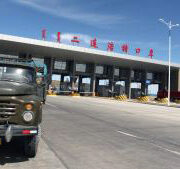 Economics
Economics
 Industry and trade
Industry and trade
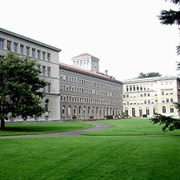 Economics
Economics
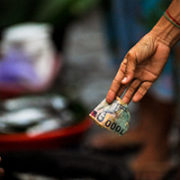 Economics
Economics
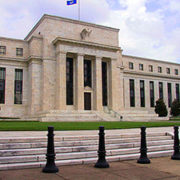 Economics
Economics
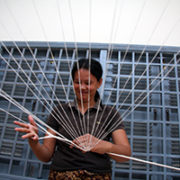 Finance sector development
Finance sector development
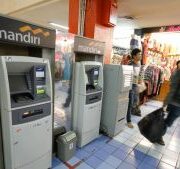
Digitizing trade – how changing the process is changing development

Over 31 million consumers in Viet Nam researched or purchased a product online in 2015. Just ten years ago, internet connectivity was only starting to become common. Digitization is changing how people trade. There are even more dramatic changes happening under the hood. The way trade is financed, processed and regulated has entered a period of disruption. We take this opportunity to consider the short and long term implications of digitization of the trade process. They’re not what you’d expect.
Uncertainty about Federal Reserve policy and its transmission to emerging economies: Evidence from Twitter

If the United States Federal Reserve tightens or eases monetary conditions, this impacts emerging economies. Over the years since the global financial crisis, a second type of spillover has emerged: spillovers stemming from the uncertainty about future monetary policy. Uncertainty spillovers exist above and beyond those stemming from specific policy steps. It is the uncertainty about the likely course of monetary policy that led investors to adjust their portfolios, thus leading to side effects on emerging markets.
Technology and innovation for SMEs: Policy lessons from East Asia

Small and medium-sized enterprises (SMEs) in developing economies often have difficulties improving their technological capabilities in terms of product or process innovation. Therefore, some kind of government support is necessary.
TPP and RCEP – friends not foes

Talks just concluded in Auckland, New Zealand on Saturday show that plans for the Regional Comprehensive Economic Partnership (RCEP) are advancing. Just as both Hillary Clinton and Donald Trump, the next potential leaders of the Trans-Pacific Partnership’s (TPP) biggest partner—the US—have distanced themselves from the agreement. Some even suggest that the US Congress won’t ratify the TPP agreement, and warn that the world economy risks US isolationism.
The effect of push/pull factors on the distribution of capital flows into Asia

Earlier literature examined determinants of international capital flows especially during the period of high and persistent capital inflows to emerging economies during 2009–2013. The literature mainly identified the push and pull factors and explained how these factors affect the capital flows into emerging Asia “on average.” In other words, the literature calculated the effects of these factors “on the mean” of the distribution of capital flows.
US tips WTO into deep waters

A U.S. decision to block the reappointment of Seung Wha Chang, a South Korean member of the appellate body of the World Trade Organization, has put at risk the independence and credibility of the WTO's dispute settlement mechanism -- the crown jewels of the multilateral trading system. After the de facto collapse of the Doha round of talks on further trade liberalization the U.S. move is a serious blow for the WTO.
The pattern of capital flows into Asia in the last decade

Looking at the varying patterns of the capital flows into Asia in the last decade, the period after the taper tantrum on 21 May 2013 until 31 October 2015 is of particular interest from both global and local perspectives.
Spillover effects of quantitative easing on the Asian credit market and policy options

One of the most significant new developments in the global post-global financial crisis (GFC) economy is the enormous asset purchase programs implemented by central banks in the industrial world to stimulate their economies. Widely known as quantitative easing (QE) programs, their impact has been substantial.
Asia growth pessimism is not warranted

A gloomy outlook is enveloping the world’s economies. There are concerns too that countries are failing to sufficiently focus on long term policy responses to reverse the decline in global growth. Some argue that the global growth slowdown may be permanent, highlighting the danger of a period of chronically low growth, or what economists term “secular stagnation.”
Fintech is the game-changer for financial inclusion in Asia

Due to innovations in financial technology and changes in the enabling environment, the number of financially excluded adults across Asia and the Pacific has dropped to about 1 billion. Increased access to affordable financial services can be a lever for Asians to smoothen consumption, manage risk and improve their lives through better savings options, access to credit, and cheaper payments or remittances.


Search
Subscribe / Connect to Asia Pathways
Subjects
- Agriculture and natural resources
- Blog
- Capacity development
- Climate change
- Economics
- Education
- Energy
- Environment
- Finance sector development
- Gender
- Governance and public sector management
- Health
- Industry and trade
- Information and Communications Technology
- Infrastructure
- Miscellaneous
- Population
- Poverty
- Private sector development
- Regional cooperation and integration
- Sanitation
- Social development and protection
- Transport
- Uncategorized
- Urban development
- Video Blog
- Water
Recent Posts
- Artificial intelligence: A new driver for inclusive growth and development?
- Increasing trust in cross-border e-commerce and artificial intelligence
- Enhancing access to maternal and newborn healthcare in developing Asia
- Can electric vehicles lead the way to a sustainable future?
- Mitigating climate-related sovereign risk to accelerate action on the climate emergency




Recent Comments